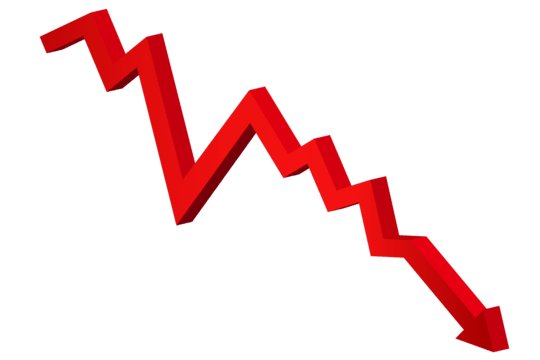Vector stocks play a crucial role in the dynamics of the global economy, influencing various sectors and trade patterns. This overview aims to elucidate the significance of vector stocks and their interconnection with economic growth, highlighting their implications for investment and market stability.
Understanding Vector Stocks and Their Importance

Vector stocks refer to collections of stocks representing companies that produce, trade, and utilize vectors—tools or entities used to transfer materials, data, or genetic information in various industries, particularly biotechnology and pharmaceuticals. These stocks are essential for several reasons:
- Investment Opportunities: Vector stocks often correlate with innovative and rapidly growing sectors that attract investor attention, particularly in the health sector.
- Market Stability: Companies with robust vector stock holdings can provide stability in turbulent markets, offering tangible assets linked to real-world applications.
- Sustainability Insights: The production and use of vector stocks often align with sustainable practices, making them attractive to socially responsible investors.
The Relationship Between Vector Stocks and Economic Growth

The relationship between vector stocks and economic growth is multifaceted. As nations invest in scientific and technological advancements, the demand for innovative solutions increases, significantly impacting vector stocks. Here are key aspects of this relationship:
| Aspect | Impact |
|---|---|
| Research and Development (R&D) | Increased R&D funding boosts vector stock performance, leading to job creation and technological advancements. |
| Global Trade | Vector stocks can enhance trade partnerships, as countries collaborate on biotech innovations. |
| Job Creation | Growth in vector stock sectors stimulates job creation, driving economic stability and growth. |
In summary, vector stocks are not only valuable assets but also indicators of broader economic health, reflecting the interconnectedness of innovation, trade, and growth. Their role in the economy underscores the importance of investing in technology-driven sectors for sustainable development.
How Vector Stocks Influence Market Stability
When we think about the stability of financial markets, it’s essential to consider the role of vector stocks. Vector stocks are essentially robust, scalable companies that serve as reliable indicators of economic health. Their performance can have profound implications on overall market stability due to several key factors.
Impact on Investor Confidence: Vector stocks tend to attract significant investment due to their resilience during economic downturns. When these stocks perform well, they bolster investor confidence across the board. Conversely, when they struggle, it can lead to broader market concerns.
Market Liquidity: High-quality vector stocks often possess considerable liquidity. This means they can be easily bought and sold without causing drastic price fluctuations. A well-performing vector stock ensures that liquidity remains high in the market, which is crucial during times of volatility.
Price Stability: The consistent earnings and dividends often associated with vector stocks contribute to their price stability. This stability can serve as a buffer against market corrections, making investors more inclined to remain in the market rather than panic sell during downturns.
In summary, vector stocks play a vital role in shaping overall market sentiment and maintaining equilibrium. Their influence extends beyond just their stock price; they help pave the way for sustained economic growth and resilience, creating a healthier environment for all market participants.
Key Industries Leveraging Vector Stocks
In today’s interconnected global economy, several key industries are increasingly leveraging vector stocks to enhance their growth potential and market presence. These industries recognize the advantages of investing in robust companies that exhibit long-term viability and stability. Let’s explore some of these sectors:
- Technology: The tech industry is perhaps the most noted area for vector stocks. Companies like Apple and Microsoft not only lead in innovation but also showcase consistent earnings growth, making them pillars of the market.
- Healthcare: With an ever-growing need for medical advancements, companies in pharmaceuticals and biotech that successfully manage their vector stocks can influence market stability while delivering vital healthcare solutions.
- Consumer Goods: Brands that have established robust supply chains and consistently meet consumer demand often become vector stocks. Firms like Procter & Gamble exemplify this, providing steady returns even in economic uncertainty.
- Finance: The financial sector also benefits from vector stocks, particularly institutions with a strong balance sheet and reliable income streams. These firms can help smooth out the volatility often observed in the broader market.
Each of these industries demonstrates the critical importance of vector stocks, showcasing how they not only influence their respective sectors but also contribute to broader economic stability. As such, investors should keep an eye on these vector stocks, as they are often indicative of a healthy economy.
The Global Impact of Vector Stock Trends
Vector stocks, often overlooked in discussions about the global economy, are crucial for understanding market dynamics. These stocks represent companies involved in the production and management of various vector-related products and services, including biotechnology, pharmaceuticals, and agricultural innovations.
One of the primary global impacts of vector stock trends is their influence on healthcare advancements. For instance, companies that innovate in vector-based drug delivery systems can significantly reduce the costs of treating diseases. This not only benefits individual health outcomes but also eases the economic burden on healthcare systems worldwide.
Furthermore, vector stocks are pivotal in the agriculture sector. With the rising population and increasing food demand, these stocks support advancements in agricultural biotechnologies. Trends in vector stocks can lead to the development of genetically modified crops that exhibit higher yields and resistance to pests, ultimately contributing to food security. A few trends to note include:
- Increased investment in gene editing technologies – Companies focusing on CRISPR and other gene-editing technologies often drive vector stock prices upward.
- Sustainability initiatives – As more companies emphasize eco-friendly farming practices, vector stocks in sustainable agriculture are likely to gain traction.
- Global partnerships – Collaborations between biotech firms and agricultural corporations can significantly enhance research capabilities and market reach.
In essence, vector stock trends not only reflect the performance of specific industries but also provide insights into broader economic shifts. Investors and businesses that grasp these trends can position themselves strategically in a rapidly evolving market landscape.
Challenges Facing Vector Stocks in Today’s Economy
Despite their potential, vector stocks face a myriad of challenges in today’s economy. Understanding these obstacles is key for investors and stakeholders aiming to navigate this intricate landscape effectively.
One major challenge is the regulatory environment. Companies working with vector technologies often find themselves under the scrutiny of government institutions. Stricter regulations can hinder innovation and slow down time-to-market for new products. This is particularly evident in the biotechnology sector, where lengthy approval processes can deter investments.
Another pressing issue is market volatility. Vector stocks are sensitive to a host of external factors, including geopolitical tensions and economic downturns. For instance, conflicts can disrupt supply chains, impacting the availability of necessary materials for biotech production. Additionally, fluctuations in market demand can lead to unpredictable stock prices.
Finally, there is the challenge of public perception. As biotechnologies evolve, ethical concerns and misinformation can influence consumer attitudes. Issues surrounding genetic modification, for example, can create public reluctance to embrace new technologies, ultimately affecting the financial health of companies involved in vector stocks.
In summary, while vector stocks present extraordinary opportunities for growth and development, they also come with significant challenges. Stakeholders must remain vigilant, adaptable, and informed to navigate the complexities of these dynamic markets successfully.
Future Prospects for Vector Stocks in Global Markets
As we look towards the future, it’s clear that vector stocks are poised to play an increasingly significant role in the global economy. With advancements in technology and growing awareness of sustainability, these stocks present unique opportunities for investors and companies alike.
One major trend to watch is the rise of biotechnology. Vector stocks, often associated with genetic engineering and biopharmaceuticals, are becoming essential in developing innovative treatments for diseases. For instance, the increasing prevalence of genetic disorders and the demand for personalized medicine are driving investment in companies focused on genetic vectors.
Further, global health initiatives aiming to combat infectious diseases may boost vector-related industries, especially those involved in vaccine development. As countries invest in sustainable healthcare solutions, vector technologies could play a pivotal role.
Additionally, the integration of artificial intelligence (AI) in vector stock research and development enhances efficiency and precision, paving the way for exponential growth in this sector. Companies that adopt AI-driven solutions for vector design and testing may have a competitive edge, attracting investor interest.
Lastly, as environmental concerns continue to rise, vector stocks linked to sustainable practices, such as biofuels and renewable resources, are likely to gain traction. Investors who align with eco-friendly initiatives could see favorable returns as consumer preferences shift towards sustainable solutions.
Strategies for Investing in Vector Stocks
Investing in vector stocks can be both exciting and complex. To maximize your potential gains while managing risks, consider these effective strategies:
- Diversification: Don’t put all your eggs in one basket! Invest in a range of vector stocks across different sectors—healthcare, agriculture, and energy—to spread your risk.
- Research and Development Focus: Prioritize companies that are heavily invested in R&D. Firms that innovate and adapt to market demands often outperform their competitors.
- Stay Informed: Keep an eye on industry trends and emerging technologies. Subscribe to relevant journals, attend webinars, and join investment groups to remain updated on new developments.
- Long-term Perspective: With most vector stocks being tied to healthcare advancements and technological innovations, a long-term investment horizon could yield significant returns as the market matures.
- Consult Experts: Don’t hesitate to seek advice from financial advisors who specialize in biotech or technology investments. They can provide invaluable insights and guidance.
By employing these strategies, investors can position themselves to make informed decisions in the dynamic landscape of vector stocks, ultimately enhancing the potential for financial growth in line with global economic developments.
The Role of Vector Stocks in the Global Economy
Vector stocks play a significant role in shaping the landscape of the global economy. These financial instruments represent a collection of ecosystem services that are crucial in various sectors, ranging from agriculture to technology. Understanding the function and impact of vector stocks can provide insights into economic resilience, sustainability, and innovation.
What Are Vector Stocks?
Vector stocks refer to assets that are influenced by a diverse range of factors, particularly those associated with biological and environmental processes. They include:
- Biological Resources: Such as crops, livestock, and aquatic species which contribute to food security.
- Technological Innovations: Developments in biotechnology that enhance productivity and efficiency.
- Environmental Services: Ecosystem services that support life and economic activities, including pollination and natural pest control.
Impacts on the Global Economy
The contributions of vector stocks to the economy can be encapsulated in several key areas:
| Area | Impact |
|---|---|
| Agriculture | Enhances food production and security. |
| Biotechnology | Drives innovation and new product developments. |
| Environmental Sustainability | Supports conservation efforts and ecosystem resilience. |
In summary, vector stocks are crucial assets in the global economy, linking sectors through biological, technological, and environmental systems. Their significance extends from enhanced food security to fostering sustainable practices and innovations, making them indispensable in the ongoing quest for economic stability and growth.


